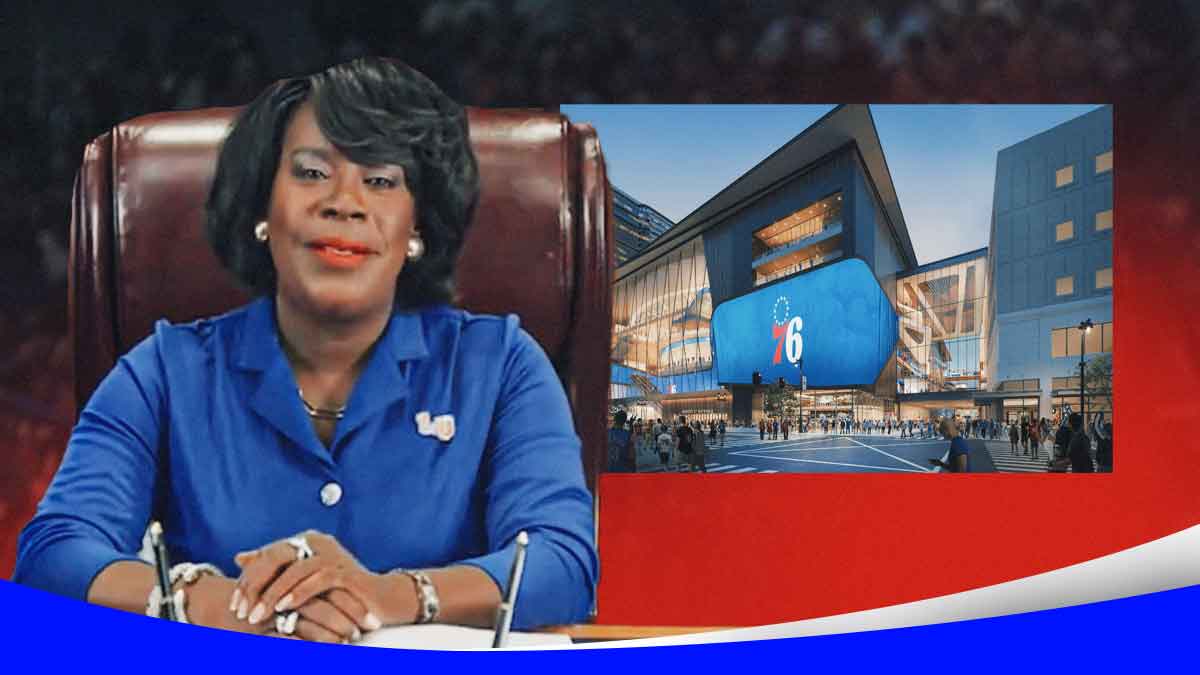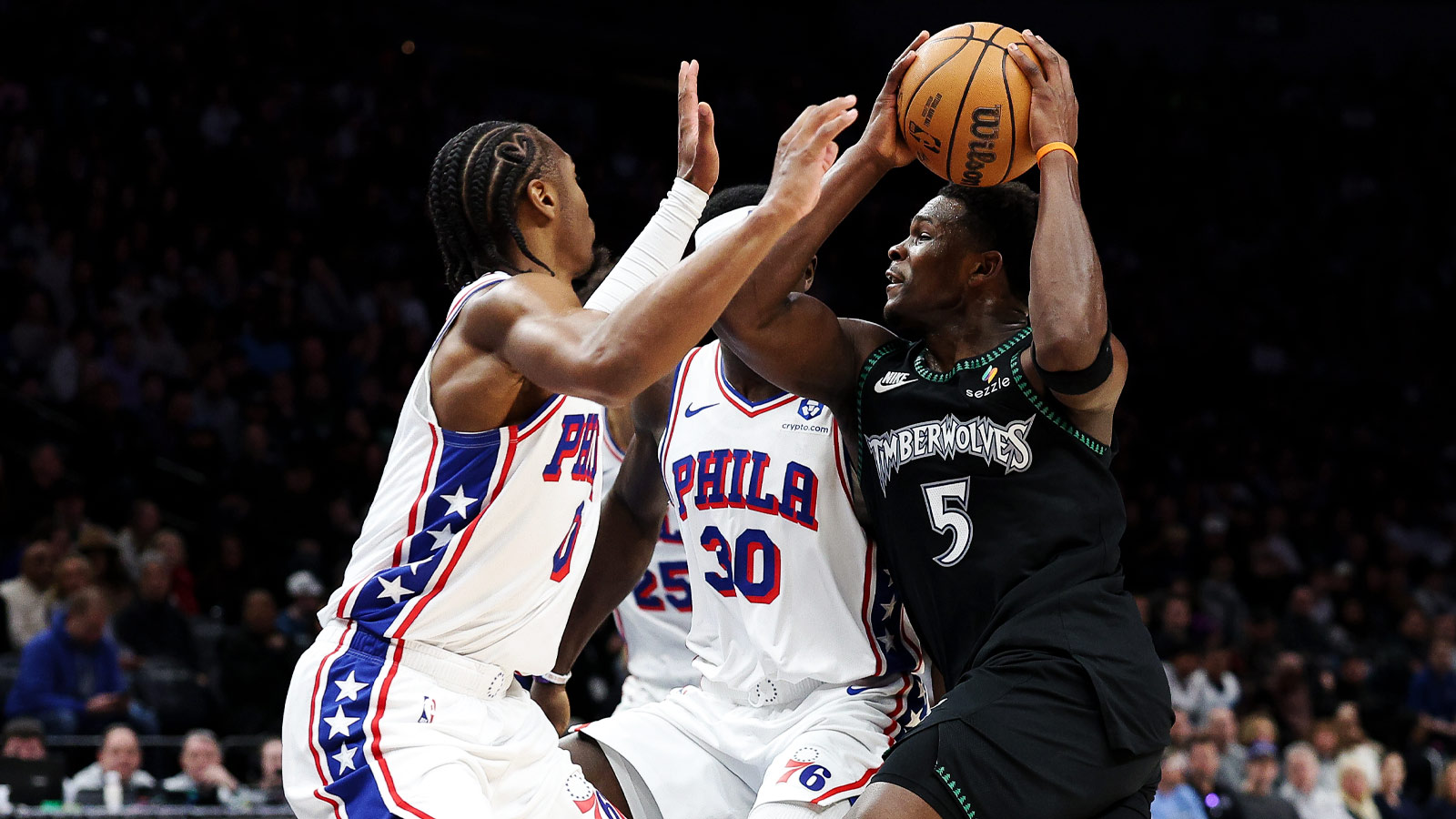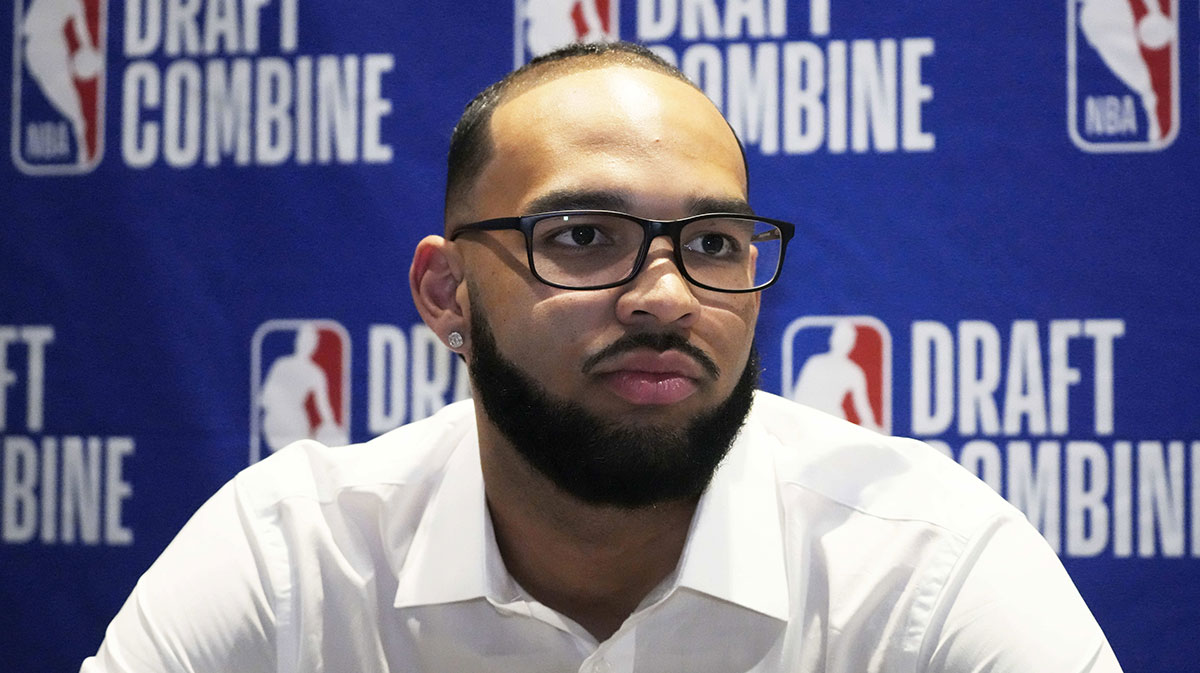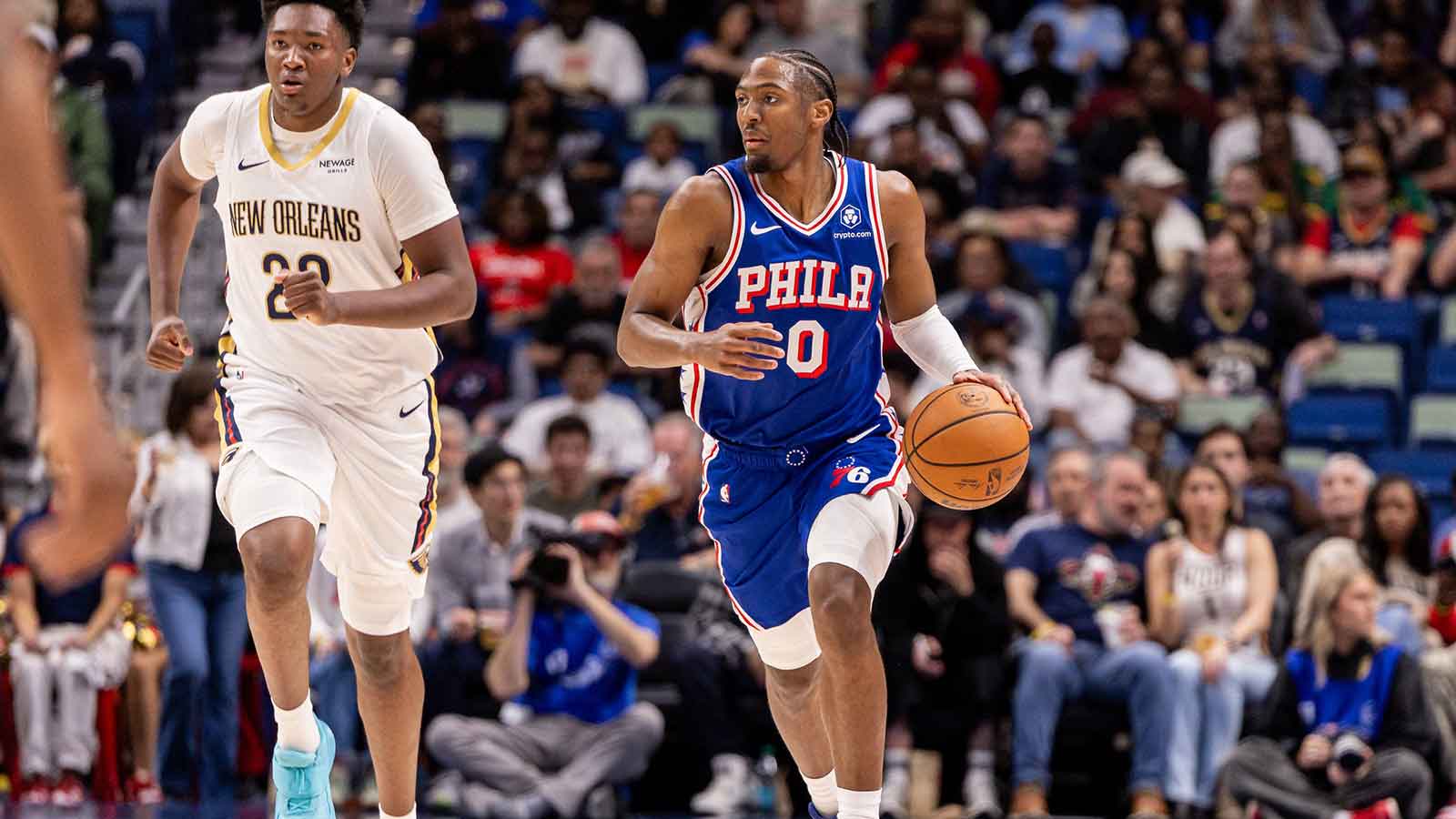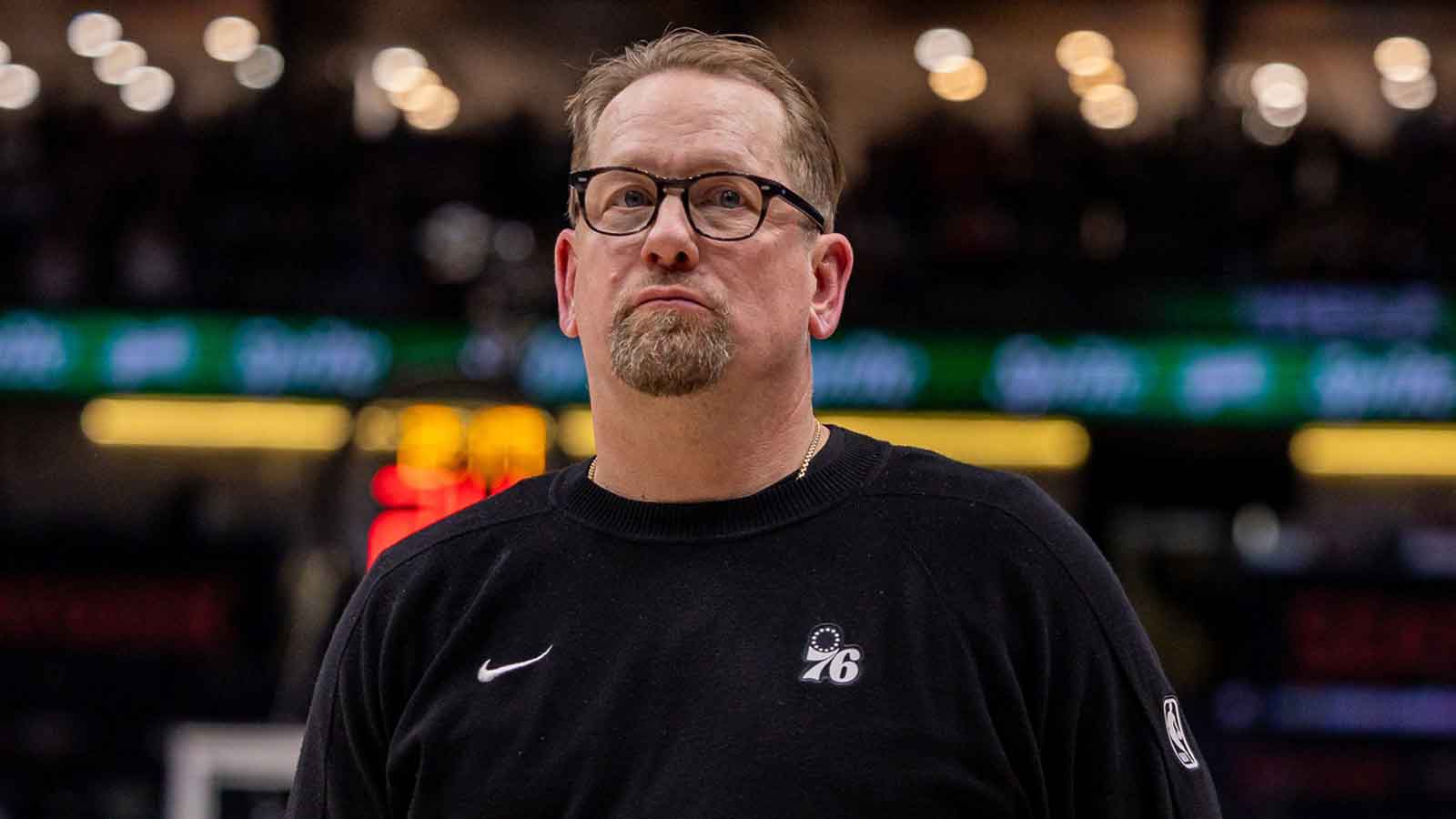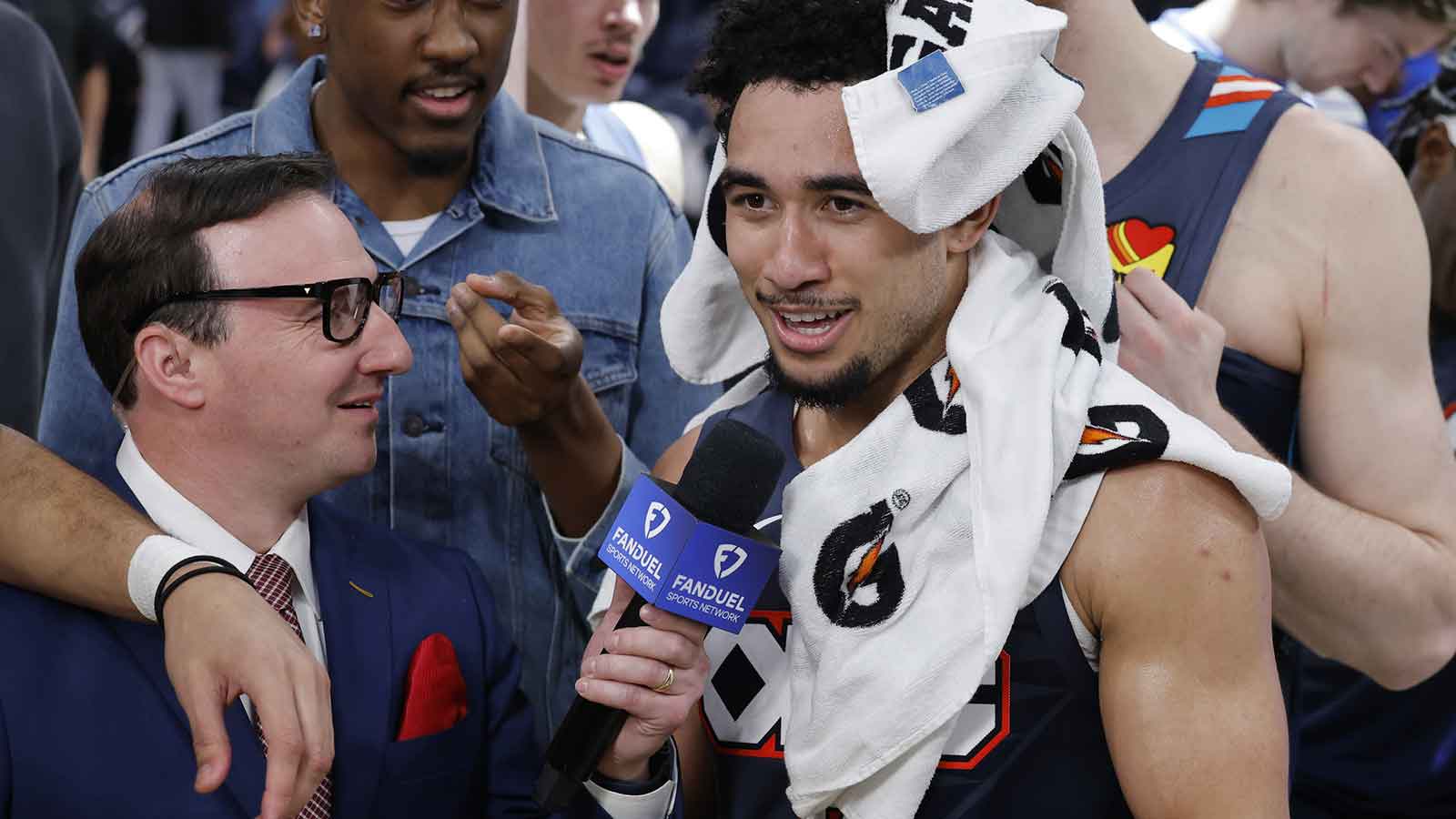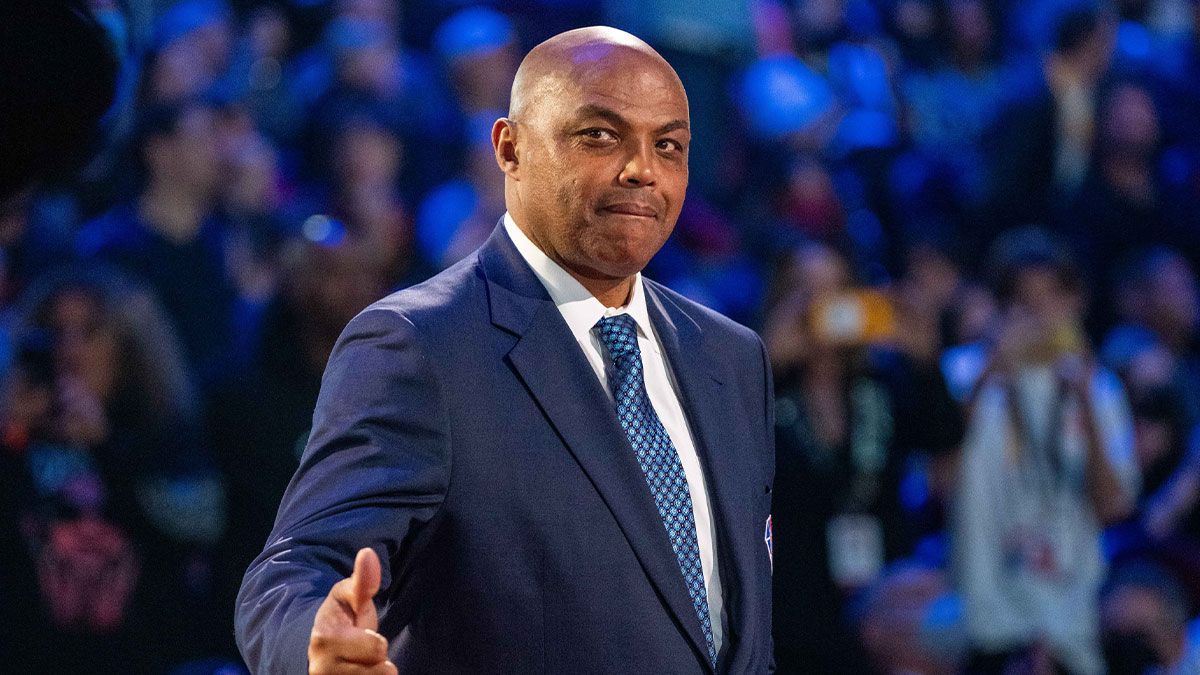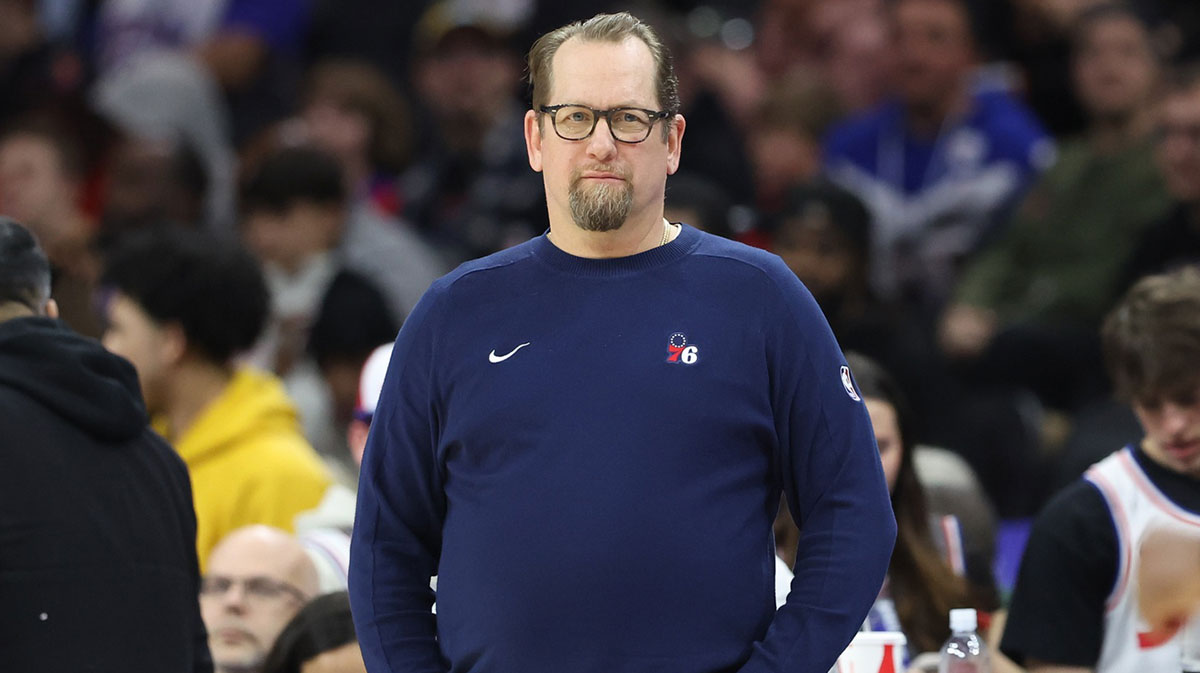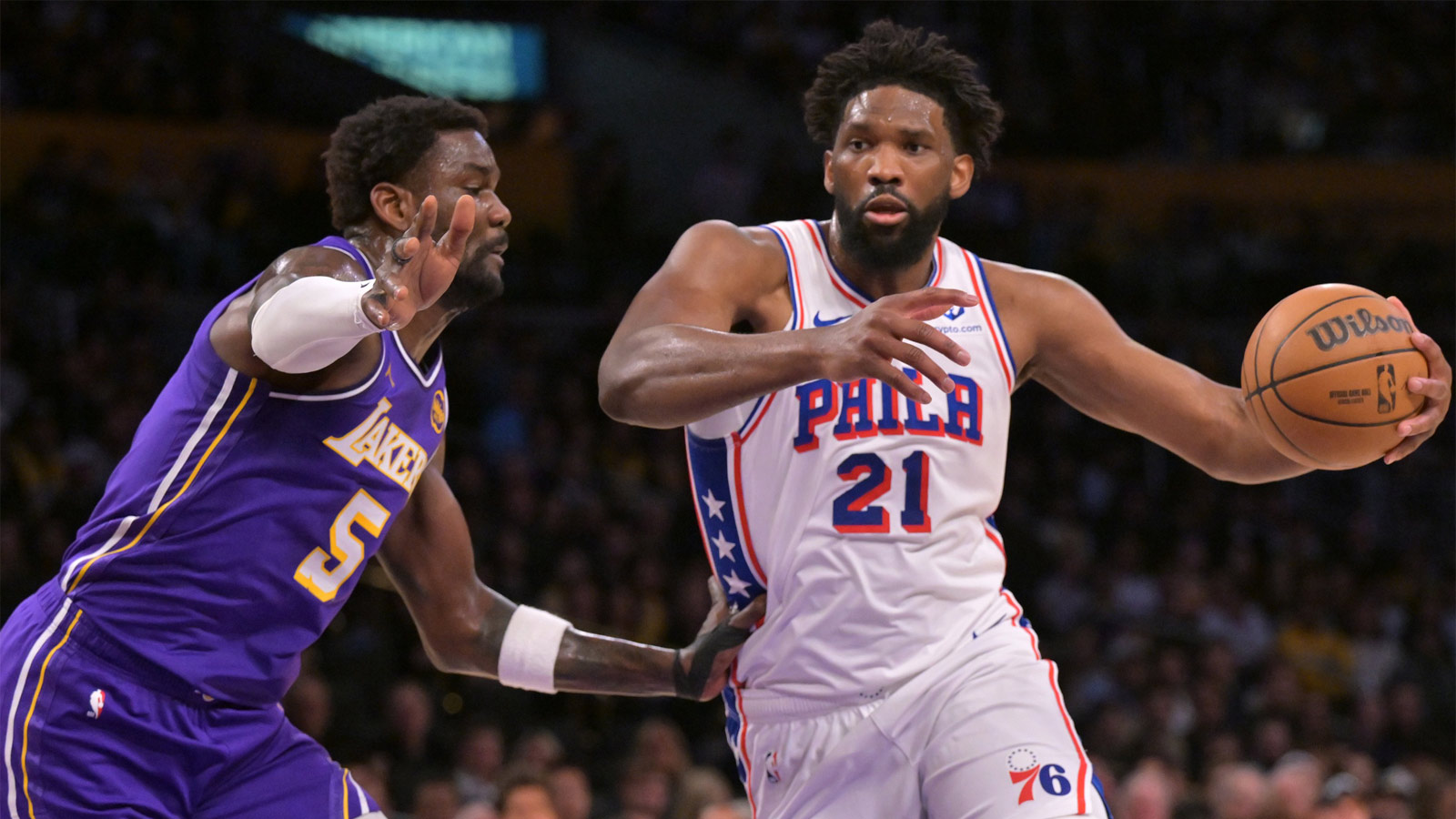The Philadelphia 76ers are in the process of creating a new arena that will keep them in the city for the foreseeable future. Mayor Cherelle Parker announced an agreement with the team and the legislative gears will soon begin turning on the construction of 76 Place at Market East.
In a public meeting at the Pennsylvania Convention Center, Parker said the agreement will keep the Sixers in Philly until at least 2061, signifying a 30-year deal that begins in 2031, when the team's lease at the Wells Fargo Center ends. She will formally transmit the legislation package — a collection of 11 ordinances — to Philadelphia City Council on October 24. The Sixers will finance an estimated $1.3 billion without city funds to construct the arena and make an annual PILOT (Payment In Lieu of Taxes) of $6 million for each year of the agreement.
“I truly am proud having made this decision and negotiated an agreement that will definitely ensure that our Sixers are staying home right here in Philadelphia, where they should be,” Parker said. She outlined a “set of principles” in negotiations that ensured the arena project would be beneficial for the city.
Principle No. 1: “Careful stewardship of city resources and focus on the city's fiscal stability.” Parker said that the 76ers arena will not utilize any city taxpayer money, a stance that the team has maintained since the beginning of the project's announcement, though it has kept itself open to the idea of using state or federal funds. A clause in one of the ordinances states that if a competing indoor arena receives city benefits (in either funds, tax breaks or land), the Sixers will get the same benefits.
Principle No. 2: “Maximizing the potential city-wide impact of such a large-scale economic development project.” Part of the arena project is a residential building. Originally planned to contain 395 units, Paul Schwedelson of the Philadelphia Business Journal noted that the count has increased to 1,115 units. Other core aspects of the project are its reliance on public transportation, which will receive an investment of $3 million, and new public safety initiatives, which will receive $4.1 million in funding that will go toward, among other things, CCTV cameras, lighting in the area and a new neighborhood security sub-station.
Principle No. 3: “Unlocking the long-overdue re-development of Market East — attracting investments, generating jobs, yielding new tax revenues and creating vibrancy on an historic and critically important commercial quarter for our city.” The arena is projected to generate over $700 million in new tax revenues for the city and its school districts and over 1,000 construction and operations jobs, Parker said.
Principle No. 4: “Preserving and enhancing Chinatown, including by responding to long-standing challenges that have developed over decades.” Parker said that the arena plan includes a $50 million community benefits agreement that will support nearby communities, including a “broader, city-led focus on Chinatown that we've never had before that is aimed at ensuring its ongoing vitality.” She also stressed that the arena is being built adjacent, not in, the neighborhood and that no buildings or structures will be demolished for the sake of the project.
76ers arena project includes $50 million community benefits agreement
Local activists and Chinatown residents have long been wary of the 76ers' arena plans, citing concerns over displacement and harm to businesses in the area, and have organized several rallies and events in opposition to the project. Although the arena is not being constructed in the neighborhood itself, its close proximity is still worrisome to community stakeholders.
“Mayor Parker continues to refuse any direct meeting with Chinatown residents, and city meetings have been devoid of facts and accountability, serving as an embarrassing example of poor due diligence,” said Vivian Chang, Executive Director of Asian Americans United, in a statement. “We urge City Council to exercise its authority and delay any legislation until we have a process that respects the needs of the city and its residents at least as much as the whims and greed of the billionaires behind this arena scheme.”
Parker said the $50 million CBA, which will begin in fiscal year 2026 (July 2025 through June 2026), is frontloaded. The mayor explained that 97 percent of the portion that will be used to address the impact on local communities ($25 million) will be spent within the first 10 years, a structure that certifies more immediate benefits.
A portion of the CBA titled “Chinatown Small Business Lending” will commit $3 million over three years to “stabilize and help expand” businesses in the neighborhood, according to the draft of the Area Transaction Ordinance. Among many other things, the CBA will commit $1.6 million in funding to businesses that are disrupted during construction and $500,000 in its first year to “address traffic, parking, and other issues related to daily functioning and quality-of-life” in Chinatown.
Parker promised town hall meetings for city residents to discuss and learn about the 76 Place project, which she deemed “the best sports facility agreement in Philadelphia's history.”
Philadelphia mayor discusses possibility of landing WNBA team
A PowerPoint presentation of the arena agreement states (on slide 66) that the 76ers “expect to submit a bid for a WNBA team in Philadelphia” and that the new arena will make them “well-positioned” to succeed.
The latest round of WNBA expansion features new squads in San Francisco, Toronto and Portland, bringing the league's total of teams to 15 by the 2026 season. As the W pursues one more team to add in the near future, Philadelphia was mentioned by league commissioner Cathy Engelbert as one of the possible locations.
“I know you've noticed we don’t have a WNBA team here in the city of Philadelphia,” Parker said. “Any of y’all ever noticed that? Y’all know y’all’s mayor don’t like that.” She added that she previously connected Pennsylvania Governor Tom Wolf and then-Philadelphia Mayor Jim Kenney with “a dynamic group of women” who have worked to land a WNBA team for the city. The Philadelphia Inquirer reported that the group is led by actress and comedian Wanda Sykes, who has led efforts to bring the WNBA to Philly for years.
The WNBA aims to have a 16th team ready to play by 2028, which complicates the 76ers ownership group's plans to field a team by then. David Adelman, a part owner who has led the arena project since its inception, stressed that the franchise does not want to sign another lease at the Wells Fargo Center. Although it doesn’t have to be the Sixers ownership group that brings a WNBA team to Philly, it makes the most sense. Several teams in the league have been playing in NBA venues, a trend that should only become more common as the league continues growing in popularity.
Although Philadelphia seems likely to miss out on this round of expansion, the formalization of the 76 Place plan may be the spark that earns the city a team in the next round.
“I will tell you that with this new Sixers arena, there is no one who can tell me that Philadelphia just would not have upped its position in trying and trying to pursue a WNBA team for our great city,” Parker said. “I can hope, I can dream, I can pray!”

